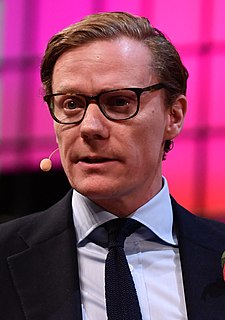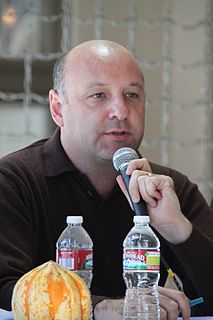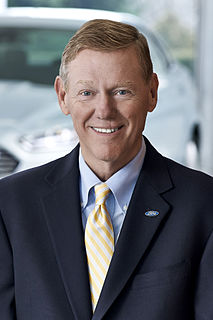A Quote by Alexander Nix
As the internet of things grows, as we have sensors on everything: cars, fridges, TVs then data is going to become ubiquitous.
Related Quotes
As the world transitions to the Internet of Everything - where people, processes, and data are intelligently connected - we'll be linked in even more ways. Here, billions and trillions of sensors around the earth and in its atmosphere will send information back to machines, computers, and people for further evaluation and decision-making.
One of the things I have taken for granted, in terms of how technology works in the world, is the people that develop it and get it out there don't really know what we are going to do with until we have really gotten ahold of it and it has become ubiquitous. And then we wind up doing things that its inventors never dreamed of and those things become the real change drivers. That is actually where the whole technocracy thing falls apart for me, because the people who invented it can't predict what we're going to do with it.
Most kids come home from school. They don't go to their TVs first. They go to the Internet. They check their emails, or some blogs, or some sites. Then they go watch TV. Other people are at work all day 9-5 in front of a computer. They see certain clips. We're not going to hide the fact that people use the Internet. We're going to try to be as interactive as possible with our fans. I'm currently on Twitter and Facebook and Flicker and Dig. I'm on all that stuff.
One of the myths about the Internet of Things is that companies have all the data they need, but their real challenge is making sense of it. In reality, the cost of collecting some kinds of data remains too high, the quality of the data isn't always good enough, and it remains difficult to integrate multiple data sources.
We speak of 'software eating the world,' 'the Internet of Things,' and we massify 'data' by declaring it 'Big.' But these concepts remain for the most part abstract. It's hard for many of us to grasp the impact of digital technology on the 'real world' of things like rocks, homes, cars, and trees. We lack a metaphor that hits home.
I pulled into the Grand Union parking lot and drove to the end of the mall where the bank was located. I parked at a safe distance from other cars, exited the BMW, and set the alarm. You want me to stay with the car in case someone's riding around with a bomb in his backseat looking for a place to put it?" Lula asked. Not necessary. Ranger says the car has sensors." Ranger give you a car with bomb sensors? The head of the CIA don't even have a car with bomb sensors. I hear they give him a stick with a mirror on the end of it.



































